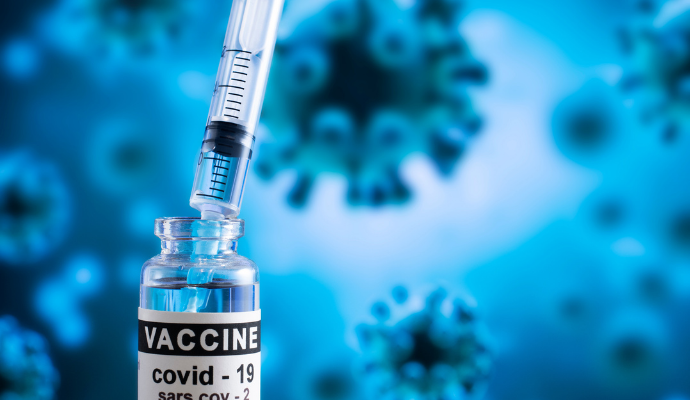FDA Expedites Approval of Gilead’s COVID-19 Treatment, Remdesivir
In other COVID news, FDA revises the authorization for two monoclonal antibody treatments and Pfizer initiates a clinical trial to study a new Omicron-based vaccine candidate.

Source: Getty Images
- FDA recently expedited approval of Gilead’s new drug application for its COVID-19 treatment, Veklury (remdesivir).
The agency expanded the drug to non-hospitalized adults and adolescent patients at high risk of progressing to severe COVID-19, including hospitalization or death. The expanded indication allows providers to administer remdesivir in qualified outpatient settings over three days.
Additionally, FDA expanded the pediatric emergency use authorization to include non-hospitalized pediatric patients younger than 12 years of age at high risk of disease progression.
“Remdesivir has now helped to treat more than 10 million people around the world with COVID-19 and continues to play a key role in helping to reduce the burden of the pandemic. Based on the most recent data, we now understand that remdesivir is also effective in the early stages of COVID-19 infection, in addition to helping patients who are hospitalized with the disease,” Daniel O’DayO’Day, chairman and CEO of Gilead, said in the announcement.
FDA based its approved and pediatric expansion on results from the randomized Phase 3 trial, PINETREE. The trial evaluated the efficacy and safety of a three-day course of remdesivir to treat COVID-19 in hospitalized patients at high risk of disease progression.
In the trial, remdesivir reduced COVID-19 related hospitalization or death by 87 percent compared to placebo. Researchers also observed no deaths.
In October 2020, FDA approved remdesivir as the first COVID-19 treatment for patients 12 years of age and older.
FDA Revises Authorization of COVID-19 Antibody Treatments
FDA recently revised the authorizations for two monoclonal antibody treatments, bamlanivimab and etesevimab (administered together) and REGEN-COV.
Under the revision, caregivers can only administer the antibodies when the patient is likely infected with or exposed to a COVID-19 variant susceptible to these treatment options.
The agency based its decision on recent data, which showed that the combination treatment and REGEN-COV are “highly unlikely” to be active against the Omicron variant.
If patients in certain geographic regions are infected or exposed to a variant susceptible to these treatments in the future, FDA stated that it will authorize the antibodies in those specific regions.
CDC estimated that the Omicron variant may account for over 99 percent of cases in the US. Therefore, it is improbable that COVID-19 patients seeking care in the US are infected with a variant other than Omicron.
Similarly, NIH COVID-19 Treatment Guidelines Panel also recommended against the use of the combination treatment and REGEN-COV due to reduced activity against the Omicron variant.
Additionally, real-time testing to identify rare, non-Omicron variants is not routinely available.
Pfizer, BioNTech Initiate Study to Evaluate Omicron-Based Vaccine
Pfizer and BioNTech recently initiated a clinical study to evaluate an Omicron-based vaccine candidate’s safety, tolerability, and immunogenicity in healthy adults 18 through 55 years of age.
The study will contain three cohorts examining different regimens of the current Pfizer-BioNTech COVID-19 vaccine or an Omicron-based vaccine in nearly 1,420 participants across three groups.
The first group will have received two doses of the current Pfizer-BioNTech COVID-19 vaccine 90 to 180 days prior to enrollment. In the new study, participants will receive one or two doses of the Omicron-based vaccine.
In the second group, participants will have received three doses of the current Pfizer-BioNTech COVID-19 vaccine 90 to 180 days prior to enrollment. Participants will then receive one dose of the current vaccine or the Omicron-based vaccine.
And the third group will include individuals who have not received a COVID-19 vaccine. These participants will receive three doses of the Omicron-based vaccine candidate.
“We recognize the need to be prepared in the event this protection wanes over time and to potentially help address Omicron and new variants in the future,” Kathrin U. Jansen, PhD, senior vice president and head of vaccine research & development at Pfizer, said in the announcement.
“Staying vigilant against the virus requires us to identify new approaches for people to maintain a high level of protection,”Jansen continued. “We believe developing and investigating variant-based vaccines, like this one, are essential in our efforts towards this goal.”
